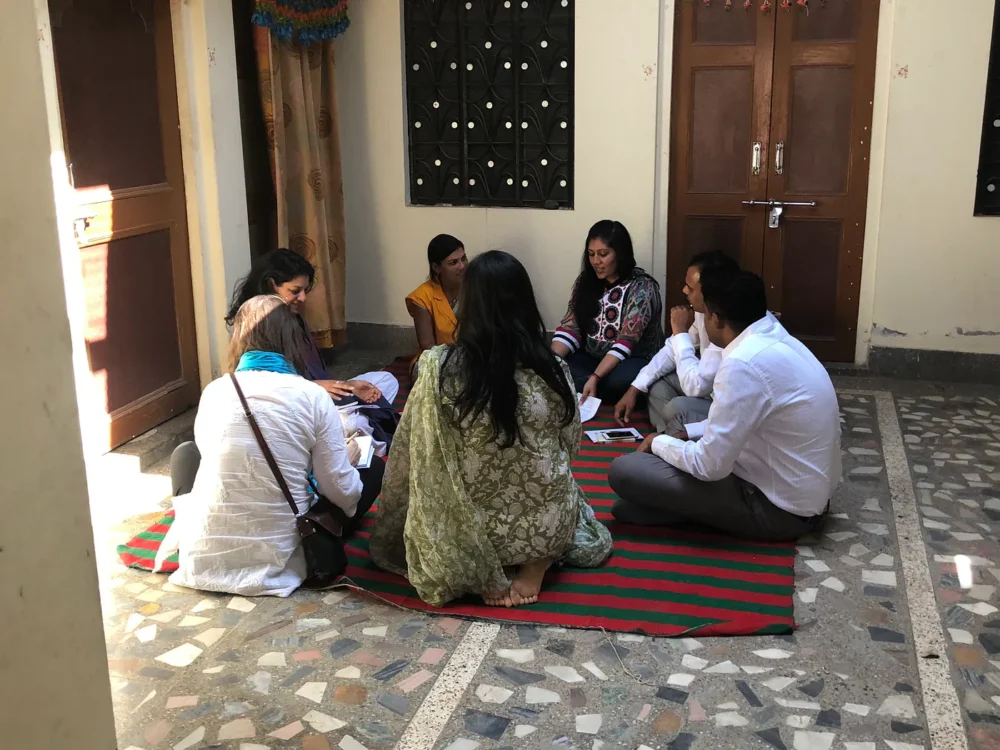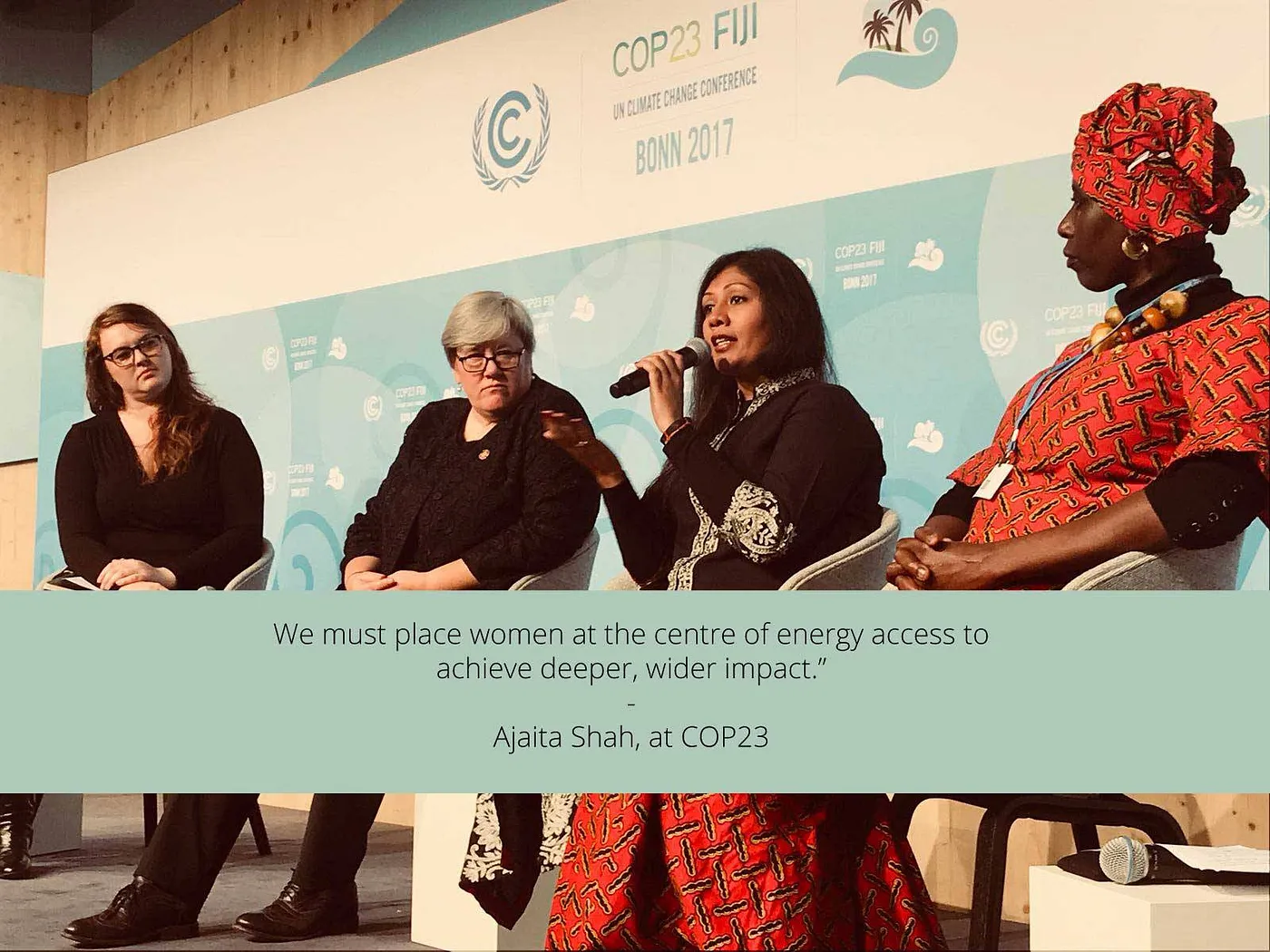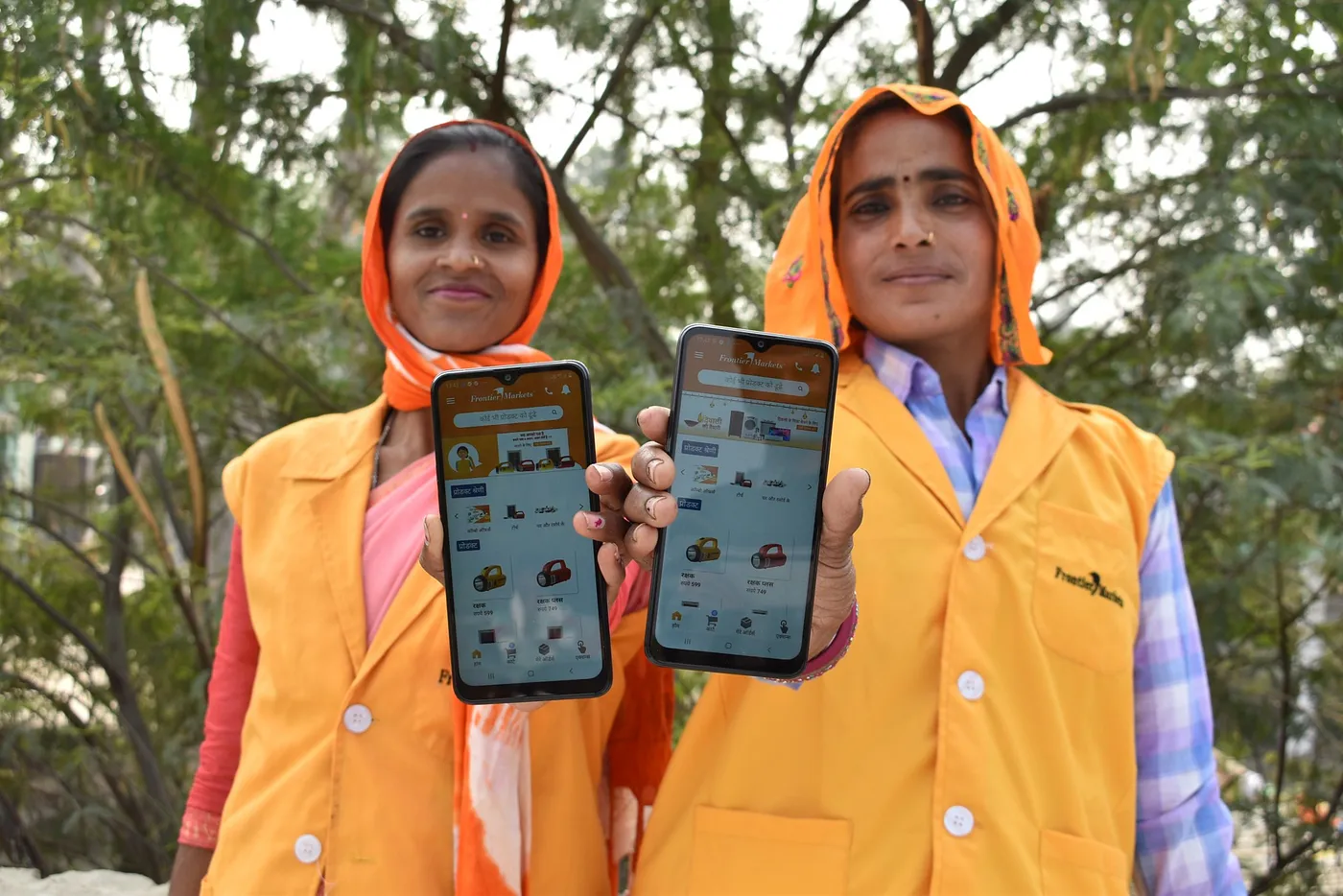Change Makers in Energy Access Spotlight: Ajaita Shah of Frontier Markets
We spotlight Ajaita Shah, the founder and CEO of Frontier Markets — a last mile-centric sales and service distribution company that mobilises a network of women entrepreneurs to provide rural Indian households access to affordable, high quality, and clean energy powered appliances

Frontier Market’s women workforce provides us with many qualitative data points that allow us to build better strategies to serve the people we want to serve, and having them has been a game changer for us.
Ajaita Shah is the founder and CEO of Frontier Markets — a last mile-centric sales and service distribution company that mobilises a network of women entrepreneurs to provide rural Indian households access to affordable, high quality, and clean energy powered appliances. Ajaita is no stranger to the clean energy access world, having worked in the microfinance sector for 7 years, servicing over 13 million women in 10,000+ rural villages across India prior to Frontier Markets. Her wealth of knowledge on the behaviours and challenges faced by rural households helped to inform the testing and technical evaluation of off-grid appliances under the framework of the Global LEAP Awards competitions.
Tell us about how your work in energy access work and what motivated you to launch Frontier Markets.
I knew it was going to be about tackling energy first. I wanted to create a foundation of trust and a launchpad that allowed other value-added services. In these large [microfinance] institutions working with women, I recognised that financial services were not the only solution for holistic poverty alleviation, and that fundamentally, there were other vulnerabilities that rural and urban populations were facing that were linked to health, employment and other [socio-economic] risks. I worked on understanding what these risks are and how to formulate partnerships to create access to products and services. From health to water to energy microfinancing solutions, I realised the ones that were successful were always composed of three key things: [consumer] instant satisfaction, high quality and durable products, and most importantly, an after-sales services component.
Having spent a lot of time in villages, in addition to living the reality of not having access to reliable electricity, I was motivated, in part also out of frustration, to start Frontier Markets to get fantastic clean energy solutions to the people that needed it the most in the most effective way possible. The mission of the company is we believe that rural households are the kings and should be recognised as dignified customers through quality products delivery and services.
Recent studies have shown that women and men access and use energy differently, with women facing greater energy related hurdles in the energy access sector. Tell us, are women in the rural households that you work with aware of this disparity and acting on their agency?
I did not think they understand that they have agency and this interestingly led to Frontier Markets’ business model to evolve. From 2012 to 2015, we did not have gender lens. Our theory back then was that if we were working in an extremely conservative state like Rajasthan, we would market energy products and get them sold where the men are. But in 2015, with about 100 thousand customers, we did a project with Ernst & Young to go deeper into why and how are our customers are satisfied, and what they are doing with the solutions we have introduced with solar products. However, every time we called the customers, they would pass the phone to their wives, their daughters, their mothers, or their sisters. At that point, we learned that 70% of the clean energy users were women. 70% is crazy! And when we started communicating with the women, everything changed because they gave us brilliant insights. We learned that 79% of the women were recommending the products to at least four other people.
We started gender mainstreaming our program and started sitting with women and asking the common things they go through. The stories were all the same, but there was no emotional connection to the burden. First, they were not allowed to have agency over their feelings and frustrations. Second, they were not allowed to have agency over decision making because they were not the first ones connecting to it [retail points] in the first place. However, it all started to change when we started asking women to be the communicators. What is interesting now is, depending on the price point of the solution, women now have the agency. We have learned that the reason why women are not owning agency has nothing to do with their connection to it [retail points], it has to do with the fact that they don’t have access to make that decision. They are, however, influencing their husbands, sons and brothers, to solve the problem.

Given that insight, how is the work of Frontier Markets impacting the gender gap in energy access?
What we have been doing is acting as a platform to bridge the gap between different kinds of products and solutions and getting them to the doorsteps of our rural customers. We do that through an offline and online solutions. Our offline work is through physical service centers and physical delivery people that are going to villages and installing solutions in households. We have a network of rural women entrepreneurs who are marketing, creating, collecting data and helping to build an understanding among their neighbors. The online side is an ecommerce app that is used by these women entrepreneurs to collect information and data in real time. We then link with partners in [energy] access, including NGOs, that have already built the infrastructure, including facilitating the finance for these women groups, and we recruit through them.

We cannot have this conversation without acknowledging what is going on in our world today with the global COVID-19 pandemic, as it has disrupted businesses and clean energy services. Can you provide insight or speak to how it is impacting Frontier Markets’ women entrepreneurs?
Frontier Markets is not only operating under a gender lens with the work with our rural consumers, but we are also gender forward with the whole organization. 60% of our staff and almost 50% of our board are women. [With a female heavy staff], there are lots of complexities that come when you suddenly have to work from home. A lot of our women are coming from traditional small towns in India and they now have to work from home. It’s a disaster because a lot of blue-collar labor workers that were working in towns and cities have been all sent back to their villages without any money. All of a sudden, when our female employees go home, they are stuck with 15 other members of their household. They don’t have the room for themselves, no one takes their job seriously, and frankly they are frustrated. The office was their escape. As a result, we’ve had to do a lot of coaching for our women employees. We also did virtual coaching session for their families to understand why she [a female employee] now might be the only breadwinner in the family during this crisis, so it is important for them not to diminish ability to support the family.
We gave all of our women smart phones last year to work on our ecommerce platform. With social distancing and lockdowns suddenly happening now, they can still do work, especially now that Frontier Markets has secured a permit from the Indian government to continue operating under the pandemic. Our entire team is working remotely and they have been calling customers to find out what is happening because access to essential goods (e.g. food staples, hygiene products, medicine, and agriculture tools) is atrocious in the last mile distribution. We currently have 40,000 consumer data points that we are leveraging to help the local governments fill the gaps for essential goods. We are now delivering weekly essential packets to rural households with support by our network of women. We have actually on boarded more women in the last month because our women cannot go to every house.
In this time of crisis, women are hungry to fix things and they have access to the most insights. If you don’t have women in your network of business, you are cheating yourself in truly understanding what is going on the ground.
***
The Changemakers in Energy Access series spotlights both women and men whose work is deeply committed to championing gender equality and empowerment in the off- and weak grid energy access space. This series seek to represent the key lessons learned throughout the Appliances Empower campaign, a global campaign by Efficiency for Access to develop deep linkages between energy access, gender equality and social inclusion. Keep up with Ajaita’s impactful work by connecting with her on LinkedIn and following Frontier Markets’ Twitter account.